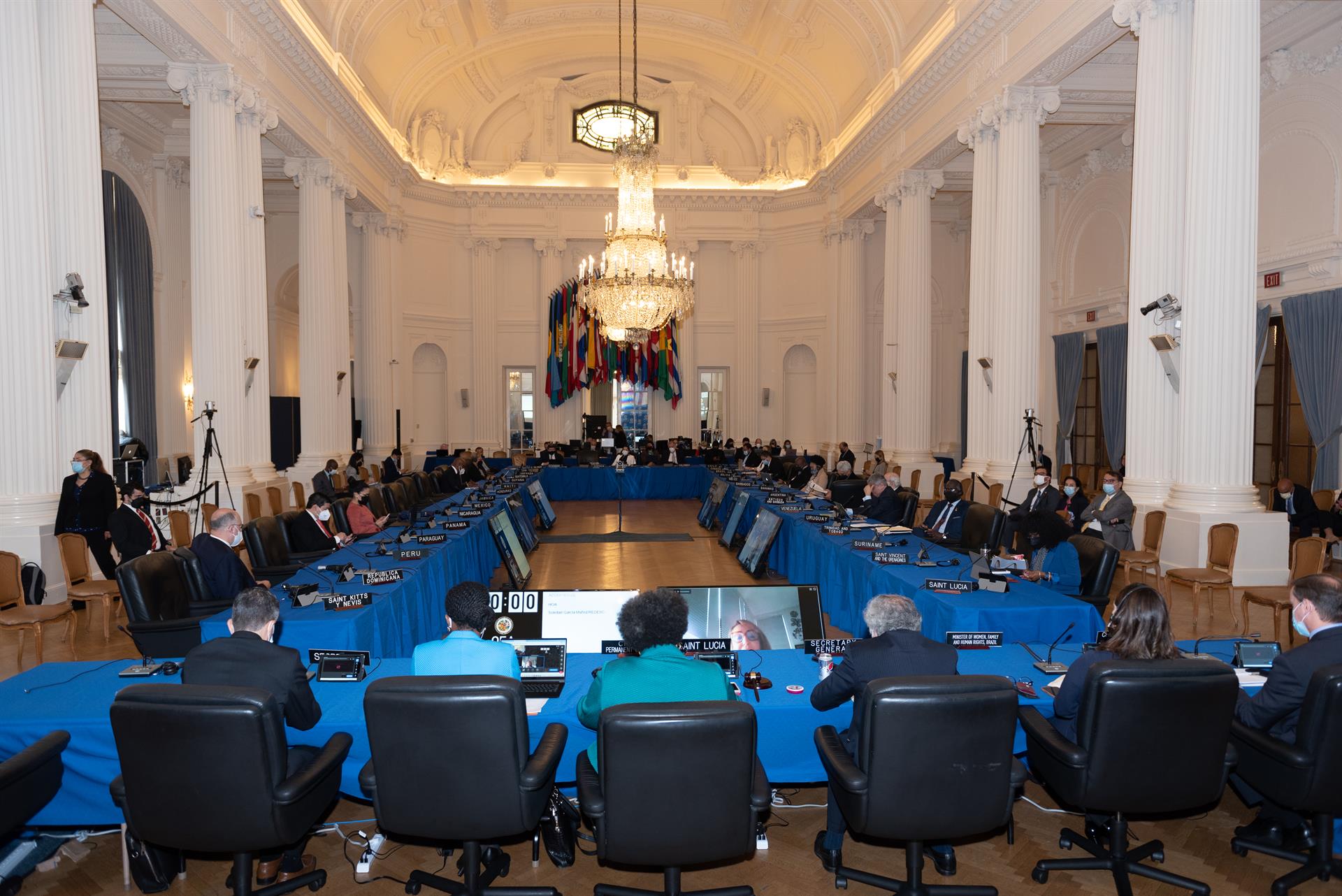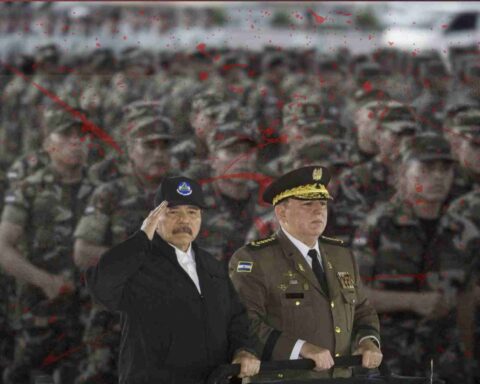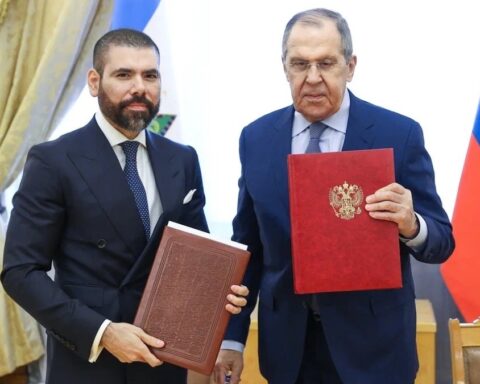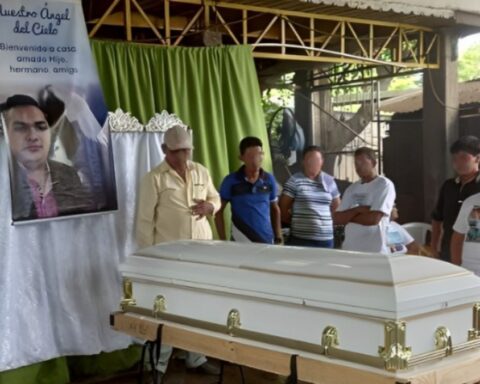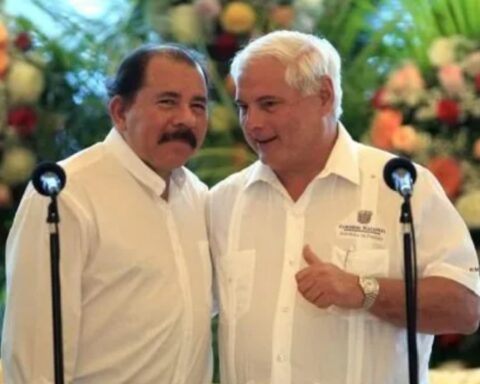The abstention of the Governments of El Salvador and Honduras in the Permanent Council of the Organization of American States (OAS), at the time a resolution was votedsolution that condemns the occupation of its offices in Nicaragua and demands that the Government of Daniel Ortega restore it, is viewed with “concern” by national analysts, who warn about the risk of “imitation of impunity.”
For the former liberal deputy and political analyst, Eliseo Núñez, the abstention of these two governments of the northern triangle of Central America is a “worrying” fact, since there is a risk that these neighboring countries “will catch” the impunity with which the government operates. Ortegaism in Nicaragua.
“In a region with similar problems, problems of a huge lack of democratic culture, there is a tendency for other autocrats to start imitating him (Ortega),” Nuñez said. “What countries do when they don’t vote in favor of a resolution that condemns human rights violations is take care of their health. They know that later there may be a violation of human rights on their part and they do not want to see themselves in the place where Nicaragua is, ”she added.
The OAS resolution, which was approved with 29 votes in favor and only 3 abstentions, requires the Nicaraguan authorities to “immediately” restore the use of the premises occupied on April 24, and promises to continue “dealing with this matter and consider other actions that may be necessary.
The permanent representative of El Salvador, Ambassador Agustín Vásquez, justified his country’s abstention by arguing that “in the recent history of the organization, the norms referring to the inviolability of diplomatic headquarters were transgressed and ignored in favor of some and to the detriment of others. , distorting and eroding the peaceful coexistence that should exist in the region”.
For his part, the former Nicaraguan ambassador to the OAS Arturo McFields described as “dramatic” the position of the two neighboring countries of Nicaragua that abstained in the vote.
“Dramatic change in El Salvador that refrained from condemning the assault on the OAS headquarters by Ortega Murillo. Honduras also did it, although it is not surprising. There is a dark and dangerous dictatorial turn in Central America,” McFields noted, on his Twitter account.
Support from Mexico and Argentina
An argument similar to that of El Salvador was expressed by the permanent representatives of Argentina, Ambassador Carlos Alberto Raimundi, and of Mexico, Ambassador Luz Elena Baños. Both voted in favor of approving the text, but wanted to distance themselves from the position of the OAS Secretary General, Luis Almagro.
“My country has decided to vote in favor, without this in any way endorsing possible actions by the Secretary General in this matter,” said Ambassador Baños.
Almagro has strongly criticized the Nicaraguan regime for having raided and expropriated the building occupied by the OAS in Managua, on April 24 last. Situation that occurs after announcing their intention to leave the organization and without letting the two years of rigor elapse between when they resign from the organization and this exit becomes effective.
The Uruguayan took advantage of his speech to lament that “this violation of the Law —in reference to the occupation of their offices— is what Nicaraguans suffer every day.”
The one who did express his full support for the OAS position was the representative of the United States, Bradley A. Freden, for whom the “forced occupation” of the offices demonstrates “the absolute disregard of the Ortega regime for peaceful and rule-based order of the Americas”.
The United States already requested at the last meeting of the Permanent Council a greater response from the organization to the seizure of the property, in which the authorities intend to install a “museum of shame.”
The Ortega government has remained silent on the resolution of the OAS Permanent Council, neither the president nor his wife, Vice President Rosario Murillo, have referred to this claim for “all breaches of their international legal obligations.”
UNAB calls for “stronger measures”
The opposition Blue and White National Unity (UNAB) applauded the OAS resolution, although it considered it “insufficient” to influence the Ortega regime.
The occupation of the OAS office in Managua “demands stronger and more exemplary measures,” the UNAB said in a press release. “We demand to convene a meeting of consultations of foreign ministers in accordance with article 61 of the OAS Charter,” they add.
“The situation in Nicaragua has exceeded all limits of tolerance, seriousness, and urgency,” argued the opposition group.
The OAS office occupancy In Nicaragua, it happened on the afternoon of Sunday, April 24, minutes after Foreign Minister Denis Moncada informed the General Secretariat of the regional organization and Nicaraguan society that the Government of Daniel Ortega decided to “cancel and close” the OAS offices in Managua. .
“Police forces occupied the headquarters of said office (of the OAS), seizing its archives, as well as all the existing material. Officials of the General Secretariat in Nicaragua can run serious risks,” said OAS Secretary General Luis Almagro in a letter he sent to the Permanent Council on April 26.
Two days later, on April 28, the Ortega regime formalized the expropriation of the property rented by the OAS in Las Sierritas de Santo Domingo, in Managua, and forced the organization’s administrative staff to vacate the place, which was declared “ of public utility” and will be used by the Nicaraguan Institute of Culture (INC) for the construction of a “Museum of Infamy”.
International political analysts have pointed out that the occupation of the OAS headquarters in Managua is an unprecedented event in the history of the regional organization and constitutes “a flagrant violation of international law” that exposes the country to “profound repercussions” in its relationship with all member states of the regional body.

